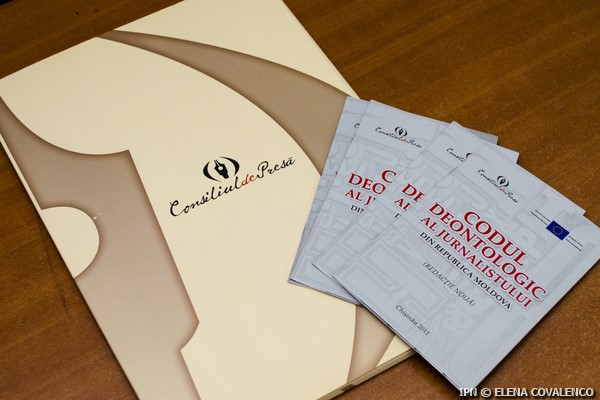The members of the Press Council express their concern about the way in which the cases of violence against children are covered by the mass media. In its last meeting on November 28, the Council ascertained that at least ten websites and TV channels violated the deontological norms when reporting a case of abuse against a teenage girl from Ialoveni district. The images disseminated by the media outlets show a girl who is verbally and physically aggressed by several young people in a kindergarten.
As the media outlets ignored the call not to broadcast images showing degrading and humiliating treatment that affects human dignity, the Press Council will request the responsible institutions, including the Broadcasting Coordination Council, to examine this case as not only the ethical norms, but also provisions of the Law on the protection of children against the negative impact of information were violated. A similar request will be made to the people’s ombudsperson for children’s rights. By this yearend, the Council will hold a debate to discuss subjects related to the protection of child victims in journalistic content, IPN reports.
In the mentioned case, practically all the websites and TV channels took the images from the website Telegraph.md. Two days after the publication of the article, the Press Council made a call, warning the media outlets to be attentive when they cover cases of abuse involving minors, to defend the superior interest of children and avoid disseminating images that affect human dignity and can emotionally affect both children and grownups. The Council notified ten websites and TV channels in this case, but only the portal Realitatea.md responded to the request to explain the editorial decision to publish images that affect human dignity. Thus, Realitatea.md remarked that they aimed to inform the public about a very serious case of violence so that this is treated with due seriousness by the authorities, but didn’t accurately explain why images showing humiliating and degrading treatment had to be published.
The Press Council ascertained that the websites Telegraph.md, Deschide.md, Point.md, Realitatea.md, Sputnik.md, Ziarulnational.md and Zugo.md and the channels Publika TV/publika.md, Canal 2/Canal2.md violated provisions of the Journalist’s Deontological Code when covering this case.
In the same meeting, the Council examined a complaint submitted by the public association “Solidary parents” against Prime TV and Publika TV, which broadcast a feature about a protest mounted by mothers who demanded not to collect taxes for purchasing hygiene products in kindergartens. The association said the two TV channels manipulated the public opinion, presenting the protest as one staged by a political party. After examining the feature, the Council determined that Publika TV and Prime TV violated a number of articles of the Deontological Code and recommended them to put things right.
Another examined complaint was filed against the portal Deschide.md by the legal representative of Vladislav Corcodel, division head at the National Investigations Inspectorate, who is under investigation. The complaint refers to an article published after V. Corcodel sued the portal for posting other articles about him. The complainer and his wife said this article is offensive, harms their honor and violates their legitimate rights and the presumption of innocence. They also said that information was leaked as photos published by the portal were taken during searches at their home and were secret. The Press Council explained to the complainers that the journalists have the right to protect the source and, when a public figure is investigated for obtaining undue gains, the publication of photos showing the luxury in which this lives is justified. But it also established that the authors of the article violated the Deontological Code as the opinion of persons involved directly wasn’t requested. The Press Council recommended the complainers to ask the right to reply over the accusations made against them and advised Deschide.md to offer them this right, as the professional journalistic deontology provides.

